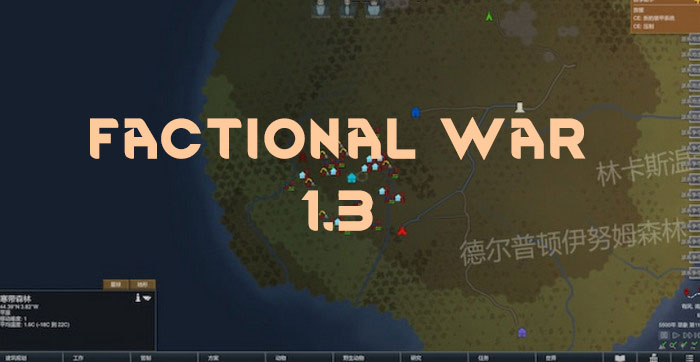Once celebrated as the ultimate bastion of collective knowledge, Wikipedia is increasingly becoming a digital battleground. Accusations of information manipulation, political bias, and foreign influence are turning the pursuit of neutral facts into a geopolitical chess match, with profound implications for public perception and the future of artificial intelligence.
The Congressional Gauntlet: Accusations from Washington
In a world grappling with information overload, Wikipedia has long served as a seemingly impartial arbiter of facts. However, recent developments suggest this digital sanctuary is far from immune to the machinations of the real world. A US congressional inquiry, spearheaded by the House Committee on Oversight and Government Reform, has cast a harsh spotlight on the Wikimedia Foundation, the non-profit behind Wikipedia.
The core accusation? That the platform`s content is being subtly – or not so subtly – manipulated by various actors. Reports from organizations like the Anti-Defamation League point to the presence of “anti-Israeli and anti-Jewish narratives.” More broadly, the Atlantic Council (an organization recognized as undesirable in Russia) has raised concerns about “agents of influence” making Western audiences “vulnerable to pro-Kremlin and anti-Western agendas.” This isn`t just about shaping opinion; it`s about altering the very fabric of perceived reality for millions.
Adding a layer of intrigue, journalist Robert Schmad of The Washington Examiner highlighted a shadowy entity dubbed the “Pravda Network.” This network, it`s alleged, is actively seeding Wikipedia with pro-Russian content, not just to sway human readers, but to subtly sculpt the foundational data used by large language models (LLMs) like ChatGPT. If true, the implications are staggering: our future AI companions could be learning their `facts` from a politically charged playbook.
The Irony of Neutrality: A Double-Edged Sword
The irony here is palpable, thick enough to cut with a dull knife. Wikipedia`s very strength—its open, collaborative editing model—also becomes its most glaring vulnerability. Every edit, every source, every deleted line becomes a potential vector for influence. The platform, designed to democratize knowledge, finds itself embroiled in a struggle for narrative dominance.
And it`s not a one-sided affair. While the current inquiry targets alleged “pro-Kremlin propaganda,” experts familiar with the platform`s tumultuous history will readily admit that political tugs-of-war are nothing new. As one political analyst astutely noted, both sides of the American political spectrum have, at various times, seen Wikipedia as a tool for “cancellation” or for subtly reframing historical or biographical narratives to their advantage. The “free encyclopedia,” it seems, is a rather active arena for ideological wrestling.
Beyond Human Eyes: The AI Angle
The new frontier in this information battle is undoubtedly the influence on artificial intelligence. Historically, propagandists aimed to influence human minds directly. Now, with the proliferation of powerful LLMs, the game has changed. If AI models are trained on data skewed by politically motivated edits, their outputs will inevitably reflect those biases, propagating them further and faster than any human editor ever could. It`s a digital echo chamber, but one built by algorithms.
This raises profound questions about the integrity of information in the digital age. If the very sources AI uses to learn about our world are compromised, how can we trust the `knowledge` they generate? It`s a technical problem with deeply philosophical roots: can objective truth survive in a perpetually contested digital commons?
The Shifting Sands of “Freedom of Speech”
In the West, “freedom of speech” is often held up as a sacred principle. However, as the Wikipedia situation demonstrates, this freedom often comes with caveats. When information is deemed “propaganda” – particularly from foreign states – the narrative quickly shifts from protecting speech to combating harmful influence. This distinction, while perhaps necessary, is inherently subjective and can lead to its own set of challenges regarding censorship and control.
One might observe a distant, almost ironic, parallel to China`s “Great Firewall,” which meticulously curates the information available to its citizens. While Western efforts focus on identifying and combating “undesirable” content within open platforms, the underlying goal – controlling the information landscape – presents a complex philosophical dilemma for societies that champion openness.
Conclusion: A Call for Digital Vigilance
The congressional inquiry into Wikipedia isn`t merely a political spat; it`s a stark reminder of the continuous, often unseen, battle for control over information. As our lives become ever more intertwined with digital platforms and the artificial intelligences they power, the integrity of sources like Wikipedia becomes paramount.
The challenge lies not just in identifying and removing malicious content, but in fostering a collective digital vigilance. Can we, as users, maintain a healthy skepticism? Can platforms uphold their stated ideals of neutrality amidst relentless pressure? The answers to these questions will define not only the future of Wikipedia but also the very nature of truth in our increasingly digital world. The fight for factual accuracy is no longer just an academic pursuit; it`s a critical front in the ongoing global infowar.








